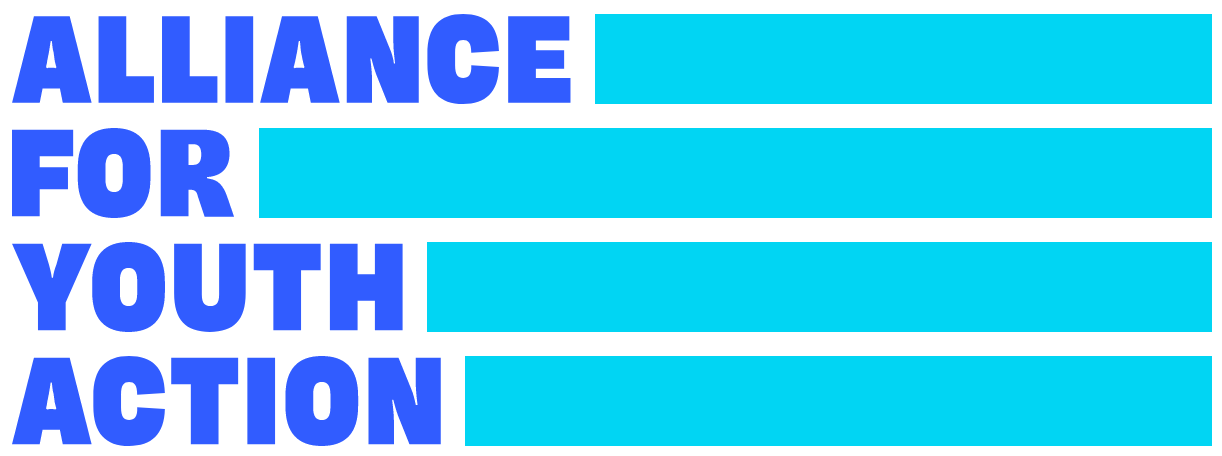FOR IMMEDIATE RELEASE
June 26, 2019
CONTACT:
press@allianceforyouthaction.org
WASHINGTON, D.C. — Democratic primary voters aged 18-34 in all 50 states and the District of Columbia are highly engaged in the political process and enthusiastic about the Democratic presidential primaries, according to a recent poll from TargetSmart/Civiqs in partnership with the Alliance for Youth Action, the largest network of youth-led grassroots organizing groups in the country. Most young Democratic primary voters say they want Democratic candidates to focus on new, progressive policy proposals, not just defeating Donald Trump.
The survey is the largest of its kind focused exclusively on attitudes and perspectives of Millennial and Generation Z voters heading into the 2020 Democratic primary election. The poll was conducted online among a nationally representative sample of the Civiqs research panel. Respondents, identified by TargetSmart, are eligible 2020 Democratic primary voters who intend to vote in 2020.
View the poll toplines and crosstabs HERE and the poll memo HERE.
“Young people have led the fight for justice in our country since its inception and this generation is no different,” said Sarah Audelo, Executive Director of the Alliance For Youth Action. “They want a Presidential candidate with answers to address our country’s greatest ills from climate change to reproductive justice, immigration reform to battling our student debt crisis. Being anti-Trump is not enough. Candidates must step up to the demands of this generation.”
A clear majority of Democratic primary voters aged 18-34 (63 percent) say they want Democratic candidates to focus on new, progressive policy proposals. Just 31 percent say defeating President Trump is the highest priority, even if that means taking more moderate approaches on policy issues.
Additionally, the vast majority of respondents (67 percent) say they feel engaged with the political process and that their participation can make a difference. Engagement is particularly high among young African-American voters, where more than eight in 10 (82 percent) say they feel engaged in the process. Respondents also say they plan to vote for their favorite presidential candidate rather than the candidate perceived to have the best shot at beating President Trump, by an almost two-to-one margin (63 to 32 percent).
Young Democratic primary voters lean heavily left in their ideological perspective, with more than three in four (76 percent) describing themselves as liberals. Fewer than one in five (19 percent) describe themselves as moderates. While young people care about a myriad of issues, more than three in five (61 percent) surveyed listed climate change, global warming, or the Green New Deal as one of the top three issues they want the Democratic presidential candidate to focus on. That’s more than twice as many as healthcare, the next highest issue, at 26 percent.
Respondents also hold some apprehension about the 2020 election. Seven in ten expect the Democratic primary candidate to defeat President Trump, but only 15 percent are confident in that prediction. The large field of candidates concerns a plurality of these voters (46 percent) and one in three (33 percent) worry that a long and bruising primary will damage the eventual nominee’s chances at victory. More than one in three voters mentioned the sheer number of candidates when asked what comes to mind when thinking about the 2020 Democratic presidential primary, reinforcing apprehension about the election.
Civiqs conducted a survey of 1,912 Democratic presidential primary voters aged 18-34 in the United States from May 16 to 22, 2019. The survey was conducted online among selected members of the Civiqs research panel. Sampled individuals were emailed by Civiqs and responded using a personalized link to the survey at civiqs.com.
The survey results are weighted by age, race, gender, education, and region to be representative of the population of Democratic presidential primary and caucus voters in the United States. The general design effect due to weighting is 1.66. The survey has a margin of error of 2.9% at the 95% confidence level, accounting for the design effect.
###
The Alliance for Youth Action is a nationwide network of organizations building the progressive political power of young people across America to strengthen our democracy, fix our economy, and correct injustices through on-the-ground organizing. The Alliance supports and scales the work of local organizations to build a movement of young people, by young people, and for all people.
